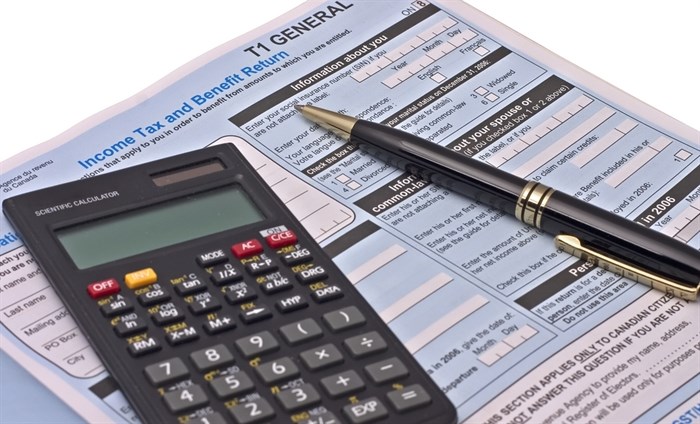
Image Credit: Shutterstock
March 22, 2021 - 7:00 AM
Sometimes there's a silver living even with taxes.
The year 2020 will be remembered for many things, and for some Canadians recovery benefits had a personal impact, one that will be reflected in their income taxes.
If you have received a recovery benefit, "you will not have to pay interest on any amount owing from your 2020 taxes until April 30, 2022" if you meet certain criteria, according to the Canada Revenue Agency.
You still need to file your tax return by the due date to avoid paying any late-filing penalties if you have an amount owing.
Those who had a total taxable income of $75,000 or less and received one or more of the COVID-19 benefits listed below fit the necessary criteria.
Eligible benefits are:
Canada emergency response benefit (CERB).
Canada emergency student benefit (CESB).
Canada recovery benefit (CRB).
Canada recovery caregiving benefit (CRCB).
Canada recovery sickness benefit (CRSB).
Employment Insurance benefits.
For more information go here.
If you worked at home last year, meanwhile, you could be in for a new deduction.
Canadians who worked more than half of their time at home for at least a month or four consecutive weeks due to COVID-19 in 2020, can claim up to two dollars a day for each day you worked at home up to a deduction max of $400.
Meanwhile, the latest tax season is rapidly nearing an end, with April 30 set as the deadline, as per usual, for many Canadians.
If you're self-employed, however, the due date is June 15.
Kamloops accountant Troy Sandyke says one of the first and foremost tips he can give is to get your taxes done on time. And that's not only for those wanting to avoid penalties.
"Know the deadline. If you want to file early because of a big refund, (Canada Revenue Agency) doesn't accept returns until Feb. 25... It's a good idea to file once you receive (all of your tax slips)," Sandyke said.
"People should also take into account the RRSP contribution date... If they're going to do any tax planning they should do it before March 1, so they can buy their RRSPs. The big thing is to know the dates."
To avoid late-filing penalties and interest, your return must be filed by April 30.
Of course, the tax system is still in flux following the changes made in 2020 due to the pandemic, and that's also an important factor in getting a jump on your taxes as early as possible.
But even with an added layer of difficulty, Sandyke says having professional help isn't always necessary.
"Canada Revenue Agency has a list of free software that is certified to work with the NETFILE program. They don't have to run up to Staples and buy a tax package."
Also, the Canada Training Benefit is a new refundable tax credit for workers who are at least 25 years old and younger than 65.
"You build up $250 a year as a refundable tax credit. You get money back if you take any training throughout the year," Sandyke said.
As well, the taxman has eased the way into homeownership a little.
First-time homeowners can take a maximum of $35,000 from their RRSPs towards buying their property, up from the previous limit of $25,000.
— This story was corrected March 22. An earlier version misstated when income taxes involving CERB were to be filed.
To contact a reporter for this story, email Darren Rathwell or call 250-819-6089 or email the editor. You can also submit photos, videos or news tips to the newsroom and be entered to win a monthly prize draw.
We welcome your comments and opinions on our stories but play nice. We won't censor or delete comments unless they contain off-topic statements or links, unnecessary vulgarity, false facts, spam or obviously fake profiles. If you have any concerns about what you see in comments, email the editor in the link above.
News from © iNFOnews, 2021